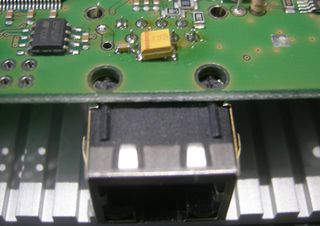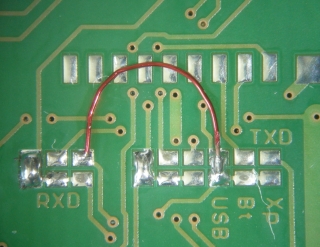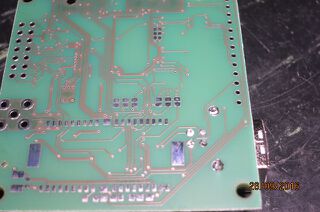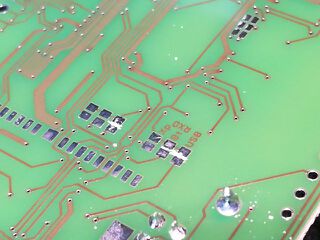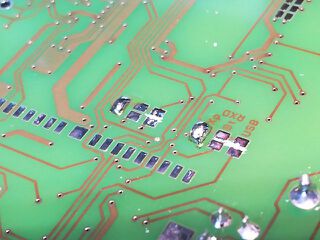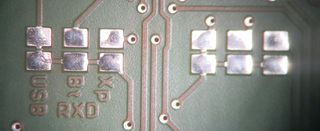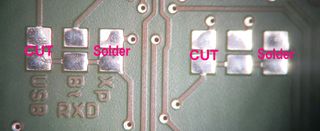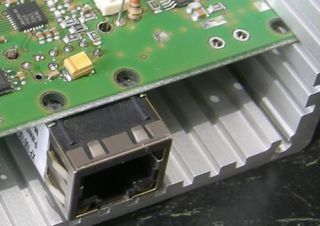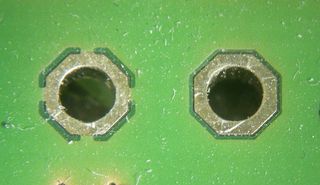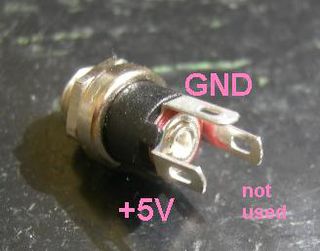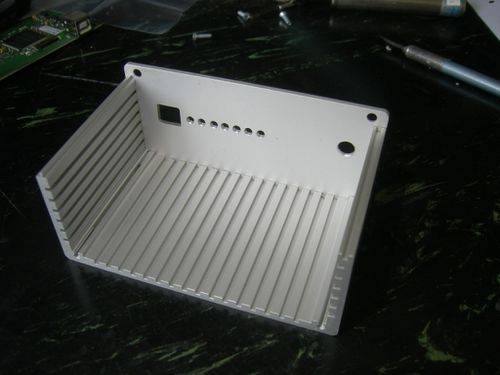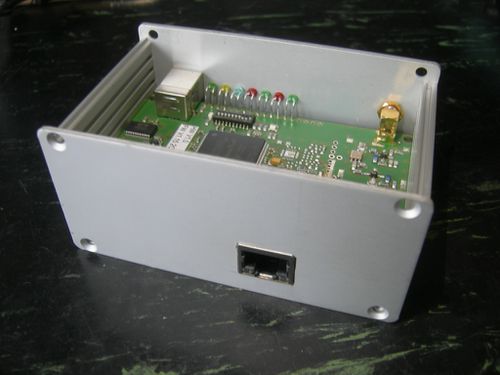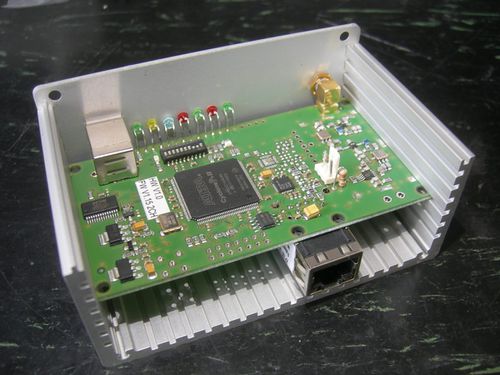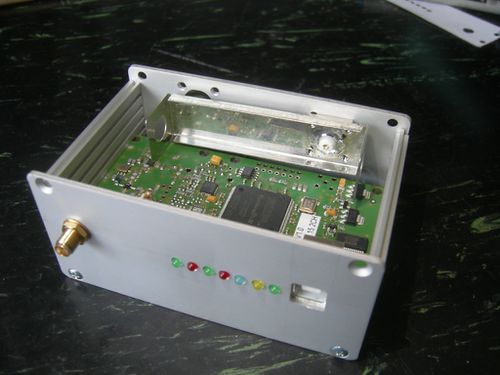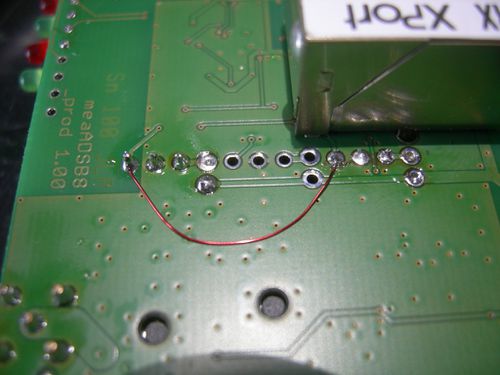Mode-S Beast:Lantronix Xport Assembly: Difference between revisions
imported>Dl4mea |
|||
| Line 8: | Line 8: | ||
{| class="wikitable" width="1000" | {| class="wikitable" width="1000" | ||
|[[File:Beast-HWV10-Xport-Caps-big.jpg|320px|Mode-S Beast - HWV10 - Xport Caps]] | |[[File:Beast-HWV10-Xport-Caps-big.jpg|320px|Mode-S Beast - HWV10 - Xport Caps]] | ||
|Adding two capacitors (provided with Xport kit) to the top side of the PCB. The small capacitor on the left side is 100nF, size 0603. The larger one on the right side is 4.7µF...47µF, minimum 3.3V, whatever available. There is no need to cut the two mounting pins of the Xport as I did! | |Adding two capacitors (provided with Xport kit) to the top side of the PCB. The small capacitor on the left side is 100nF, size 0603. The larger one on the right side is 4.7µF...47µF, minimum 3.3V, whatever available. There is no need to cut the two mounting pins of the Xport as I did!<br> | ||
Hardware version 1.3 does not require these extra parts | |||
|} | |} | ||
| Line 19: | Line 20: | ||
{| class="wikitable" width="1000" | {| class="wikitable" width="1000" | ||
|[[File:BeastV130-xport-bridges1.jpg|320px|Mode-S Beast - Hardware version 1.3 - Xport]]< | |[[File:BeastV130-xport-bridges1.jpg|320px|Mode-S Beast - Hardware version 1.3 - Xport]]<p> | ||
[[File:BeastV130-xport-bridges2.jpg|320px|Mode-S Beast - Hardware version 1.3 - Xport]]< | [[File:USB-Connections-Removed.jpg|320px|Mode-S Beast - Hardware version 1.3 - Xport]]<p> | ||
[[File:BeastV130-xport-bridges3.jpg|320px|Mode-S Beast - Hardware version 1.3 - Xport]]< | [[File:Xport-Wiring-With-Solder-Bridges.jpg|320px|Mode-S Beast - Hardware version 1.3 - Xport]]<p> | ||
[[File:BeastV130-xport-bridges2.jpg|320px|Mode-S Beast - Hardware version 1.3 - Xport]]<p> | |||
[[File:BeastV130-xport-bridges3.jpg|320px|Mode-S Beast - Hardware version 1.3 - Xport]]<p> | |||
|'''HW Version 1.3'''<br>These devices are equipped with PCB traces for the default setting of USB serial. Using a sharp knife, remove the two bridges across the pads named 'USB' (left side of each group of three). After that, insert two solder bridges across the pads named 'Xp' (right side of the group of 3<br>(The one named Bt stands for Bluetooth which was never realized) | |'''HW Version 1.3'''<br>These devices are equipped with PCB traces for the default setting of USB serial. Using a sharp knife, remove the two bridges across the pads named 'USB' (left side of each group of three). After that, insert two solder bridges across the pads named 'Xp' (right side of the group of 3<br>(The one named Bt stands for Bluetooth which was never realized) | ||
Revision as of 17:35, 8 December 2019
Lantronix Xport Assembly
Adding the Xport
In HW version 1.0, the Xport devices is installed on the bottom side of the PCB. There is a special box kit available with break outs for the front panel LEDs and the rear side Xport and power connector.
Install the Xport on the bottom side of the PCB
Standalone 5V Power Supply
Box Mounting
The standard box does not fit for the Xport, since there is too less space below the PCB. I found a bigger box with an inside height of 38mm that fits both, an Xport and an additional miniADSB. See here some impressions of how that was done.
Xport Configuration
Note: When using a Xport you have to set the RS232 baudrate to 921800 bit/sec. If you want to use two devices in parallel, like USB and Xport, it might work that the FT232R is configured for 1MBit in parallel. Otherwise you have to select a common baudrate, which is for example 115200 bits/sec for Xport and RS232.
It might be that configuration of Xport does not work with Google Chrome, with a recent Firefox it worked nice.
It is also recommended to set the Xport "CPU Performance Mode" to high in the "Server" tab, not at least to get 921600 bit/sec available.
Please be aware that the Xport is a network device and needs some higher sophisticated configuration!
see more here: https://www.lantronix.com/products/xport/
